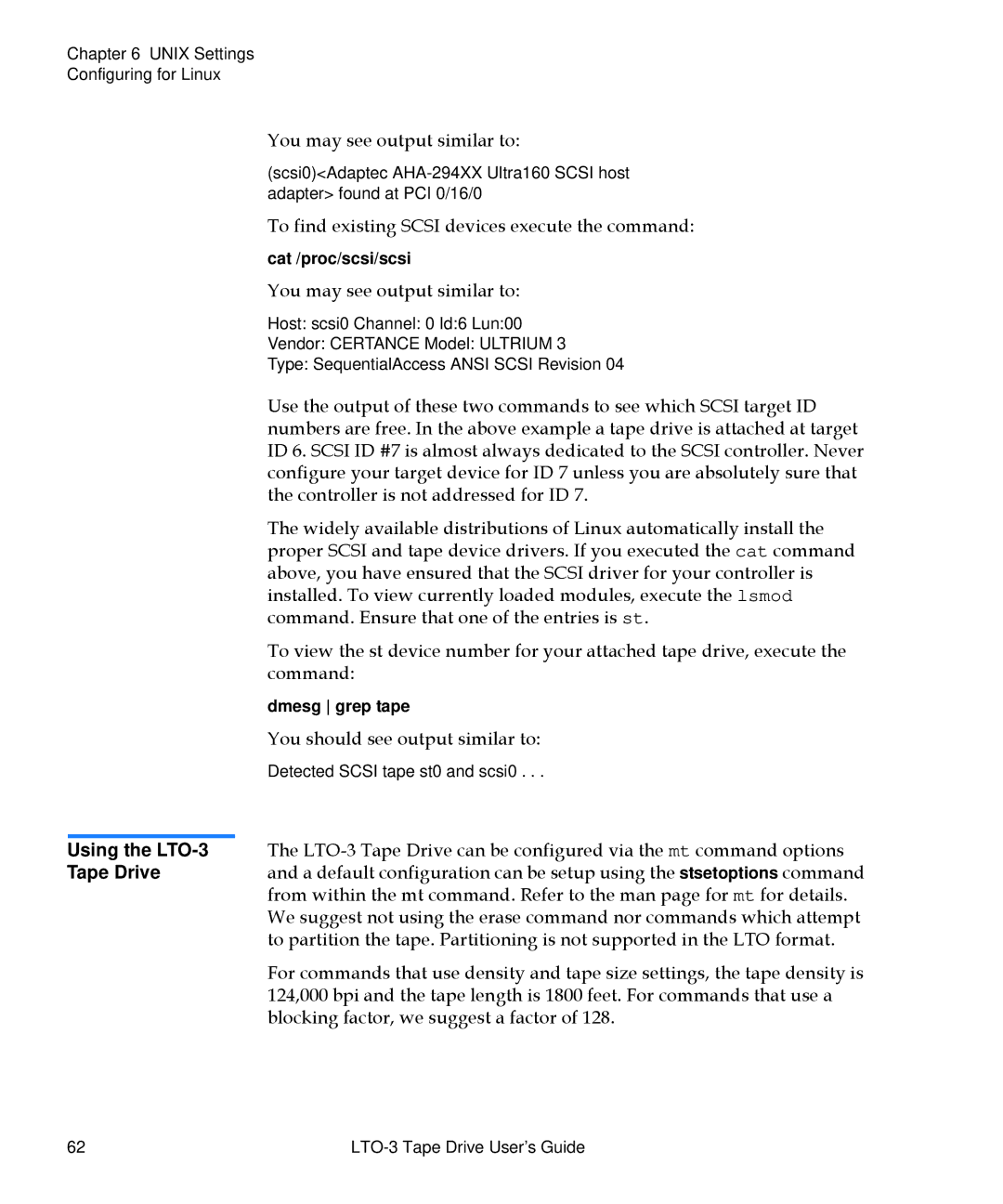Chapter 6 UNIX Settings
Configuring for Linux
You may see output similar to:
(scsi0)<Adaptec
To find existing SCSI devices execute the command:
cat /proc/scsi/scsi
You may see output similar to:
Host: scsi0 Channel: 0 Id:6 Lun:00
Vendor: CERTANCE Model: ULTRIUM 3
Type: SequentialAccess ANSI SCSI Revision 04
Use the output of these two commands to see which SCSI target ID numbers are free. In the above example a tape drive is attached at target ID 6. SCSI ID #7 is almost always dedicated to the SCSI controller. Never configure your target device for ID 7 unless you are absolutely sure that the controller is not addressed for ID 7.
The widely available distributions of Linux automatically install the proper SCSI and tape device drivers. If you executed the cat command above, you have ensured that the SCSI driver for your controller is installed. To view currently loaded modules, execute the lsmod command. Ensure that one of the entries is st.
To view the st device number for your attached tape drive, execute the command:
dmesg grep tape
You should see output similar to:
Detected SCSI tape st0 and scsi0 . . .
Using the
Tape Driveand a default configuration can be setup using the stsetoptions command from within the mt command. Refer to the man page for mt for details. We suggest not using the erase command nor commands which attempt to partition the tape. Partitioning is not supported in the LTO format.
For commands that use density and tape size settings, the tape density is 124,000 bpi and the tape length is 1800 feet. For commands that use a blocking factor, we suggest a factor of 128.
62 |
|
